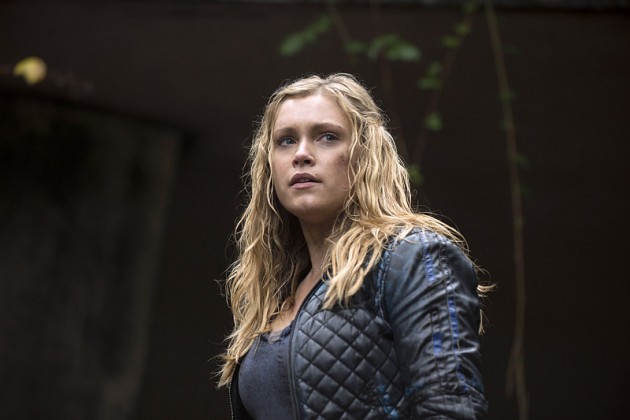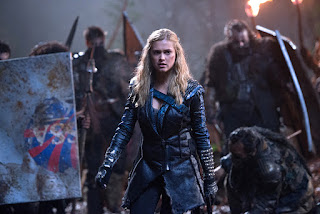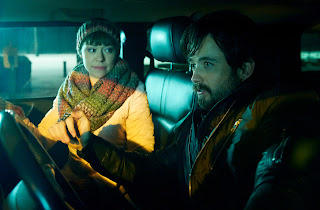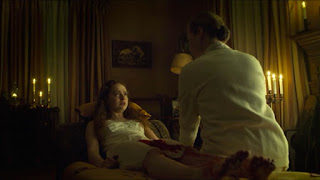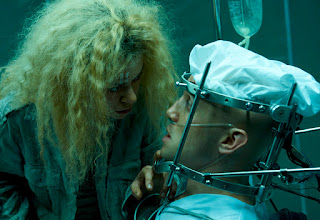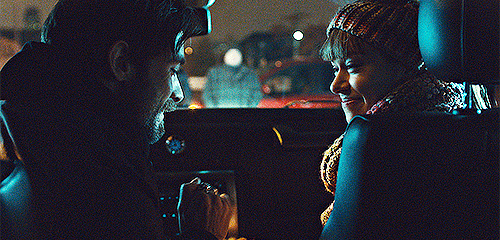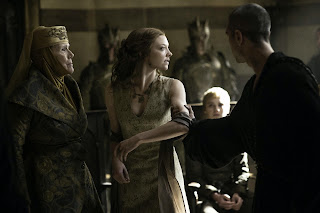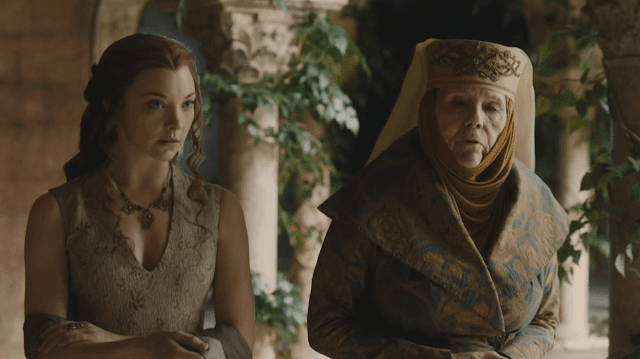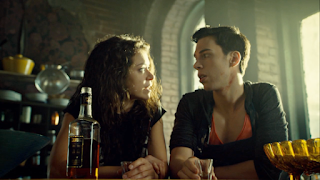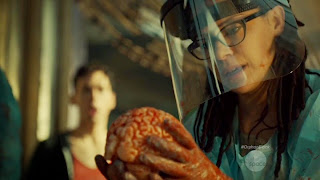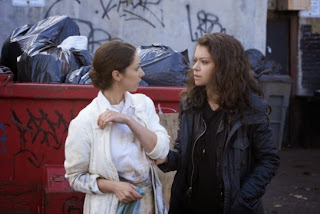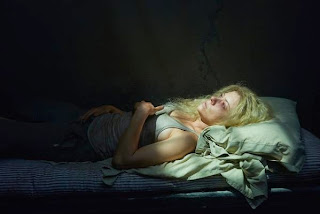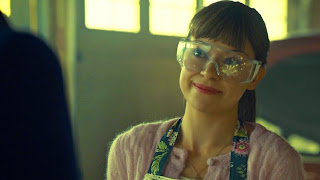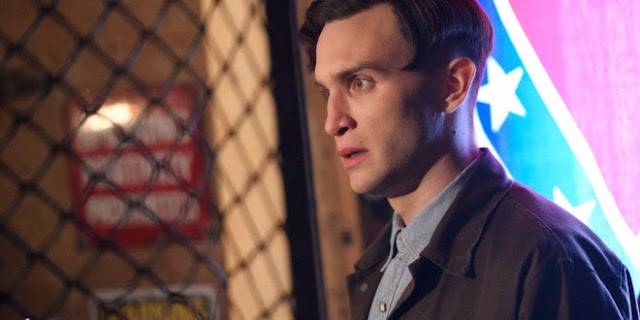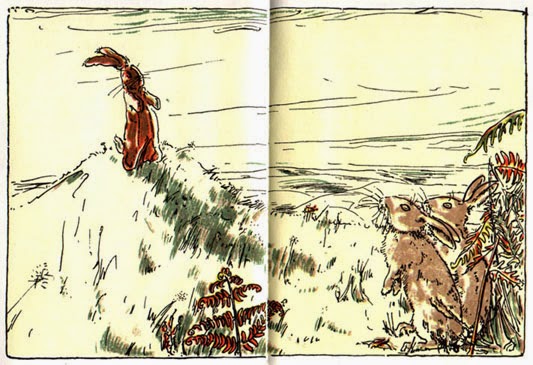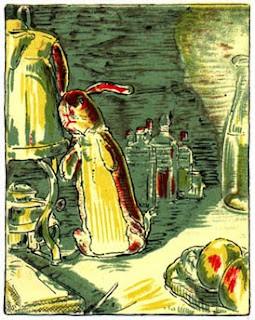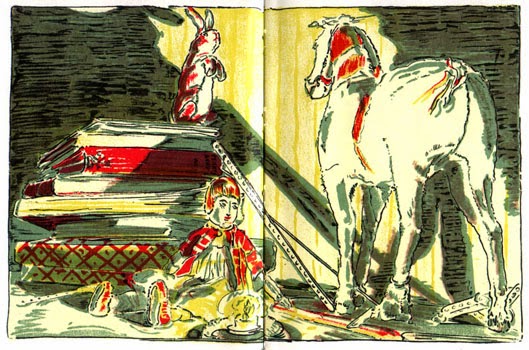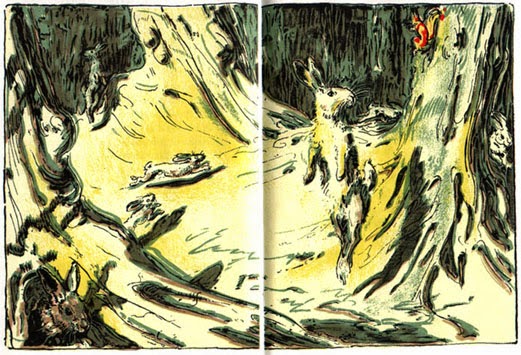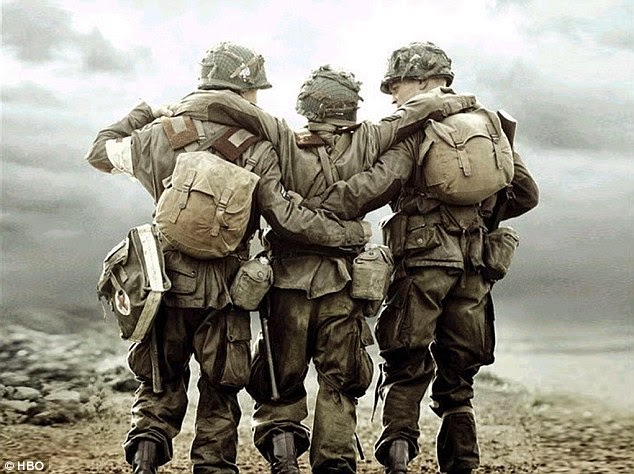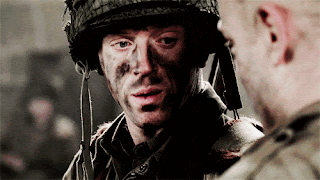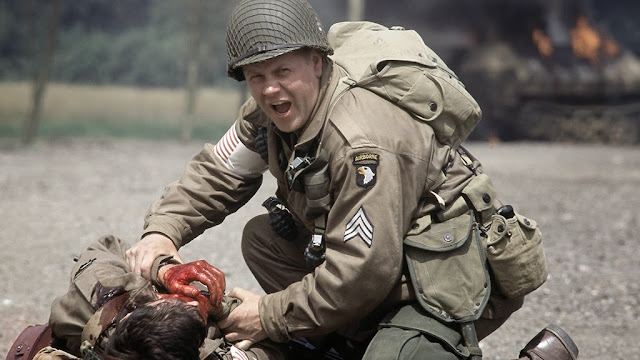I didn't want to write about Clarke from The 100 for a long time because she felt, in a way, too obvious of a pick for a Strong Female Character Friday. She is, after all, the main character of the show, a woman defined by her internal strength, and the kind of person so morally sure and so incredibly self-actualized that she becomes a leader not just of her fellow teenagers, but eventually of adults as well. So she felt like the sort of pick that, while accurate, wasn't very interesting.
But as I finally managed to bring myself to watch the season two finale, it occurred to me that I really should spend some time talking about the epic greatness that is Clarke Griffin, because while she is super obviously a strong female character in a lot of ways, she also exemplifies some traits that we tend to completely overlook in our portrayals of women.
Namely, Clarke Griffin fails. A lot. And in the second season, she fails in spectacular, heartbreaking ways. And it's important that we recognize her failures because, arguably even more than her successes, Clarke's failures are what make her a compelling character. Her weaknesses and her obstacles are the very things that make her a good role model.
So, obvious or not, let's talk about Clarke freaking Griffin.
For starters, anyone who has watched even the first few episodes of The 100 can tell you that Clarke (played by Eliza Taylor) is a complete misdirect of a character. We're introduced to her as she's sitting in "the skybox", or space station jail, drawing beautiful pictures of what she thinks Earth will look like with only the dirt and dust of her cell as her art tools. She's blonde and pretty and sweet, and as her mother tells us very early on, she's self-sacrificial and wants to keep everyone safe. It feels really easy to look at Clarke and think, "Oh, I get this character. She's going to be the sweet, nice, let's all get along character. Okay. Next!"
But to stop there is to bely the incredibly vastness of Clarke's characterization and really the genius of it. Because while her physical appearance codes to use the audience as "Disney princess" and "goody two shoes", the reality is that Clarke is neither of those things. No, she's a freaking nuclear winter wrapped up in a petite cheerleader's body.
The real genius of this, though, is that we the audience only come to know this as the other characters do. Everyone else is similarly fooled by Clarke's sweet nice exterior and assumes she'll be ineffectual and kind, a sort of mother figure to the camp but no real authority. Her main adversary, Bellamy (Bob Morley), even nicknames her "Princess" early on*, in reference to her position as the daughter of the elite back on the space station and her general "Disney princess" exterior.
The real turning point, for us the audience and for the other characters, comes when a patch of acid fog sweeps the landscape, and one poor boy is caught out in it. Bellamy and Clarke both find him after the fog has lifted, and see that his body is covered in burns. Worse, because he inhaled the fog, it's eaten through his lungs and he is slowly drowning in his own blood.
Bellamy, who has been talking up his own bravery and fearsomeness for several episodes now, finds himself unable to do the kind thing and end the boy's life. Instead, it's Clarke who reaches over and, while singing softly, slips a knife into the boy's throat and lets him gently bleed out on the grass. Bellamy watches in revelation as he sees that, far from being a delicate flower, Clarke might just be the most hardcore person on the ground.
As the season progresses, Clarke quickly becomes indispensable to her fellow delinquents, but not because she comes to be their "mother." It's more accurate to say that she, alongside Bellamy, becomes their leader. They have a co-leadership built on mutual respect, and the other kids come to them because they trust that between Bellamy and Clarke, their problems will be dealt with in the best possible way.
The second season, however, shows the fraying and eventual fracture of the bond between Clarke and Bellamy as Clarke is given more responsibility and Bellamy is largely stripped of his role. I'm not sure whether this was an intentional writing choice or not, but the result is striking. In season two, Clarke makes a lot of mistakes, largely the result of being thrust into full leadership well before she's ready and without any real accountability structure. She starts to lead all of the people, both adults and kids, because she's the only one around at the beginning, and because she's a good strategic leader.
In season two, we get to see a whole new side of Clarke. Not that she wasn't super badass before, it's just that in this season we see her wake up in a foreign place and immediately take a hostage so she can get some answers. We see her fight her way out of a place that no one has ever escaped from before, go hit for hit with a grounder warrior, and then command the respect and allegiance of the former leaders of her colony. Season two Clarke is seriously heavy metal. She even spends an episode fighting a mutated giant gorilla with only a pistol.
She develops an alliance with the local clans of grounders, leads a war party, and dispenses justice upon her people. And the grounders think this is all well and normal, because Clarke has some natural leadership abilities and she seems to be the only one who knows what she's talking about.
Unfortunately for Clarke, and for her people, natural leadership abilities really don't make one an inherently good leader, they just give you the tools. So Clarke screws up. She trusts the wrong people, makes unilateral decisions that end poorly, and ends the season with a raging case of PTSD and epic guilt.
I know this isn't super positive, and you finish the season out feeling really sad about all that Clarke has been through, but I think that's why Clarke is a strong female character really worth talking about. Because she fails. She has the innate leadership skills she needs, she has some experience, but when the chips are down, Clarke does not magically become a mystical savior who can get her people through their trials without harm. She can't save them. She's still human.
This is, to me, the most powerful subversion of her "princess" trope in the whole show. The idea that Clarke is still human enough to do a bad job. Because when do we actually see that? That's so incredibly rare. Women in leadership positions, especially teenage girls in leadership positions, so often are idealized, placed on a pedestal, and made out to be some sort of second coming. Like they can do no wrong.
But Clarke can do wrong. She does do wrong. And that matters a lot.
It matters because it makes her human. Her ability to make mistakes makes her more than just a figurehead or messiah, it makes her a girl who happens to be a good leader. A person.
It also raises the important issue that some of Clarke's qualities that make her a good leader can also make her a bad one, and that's worth talking about too. Clarke is incredibly self-sacrificial, completely ready to take the fall, and that's bad. That's not actually helpful sometimes. It's important to think about this because we (especially me) always assume that self-sacrifice is the best quality a leader can have. That's not true. Sometimes it's important for a leader to value themself more, and that's better in the long run for the society.
Again, this is an interesting subversion of normal leadership tropes in fiction. Usually when we meet the female leader, she's all about the self-sacrifice, and it either gets her killed or it works perfectly. We so rarely see characters who are about self-sacrifice and who also kind of succeed. Kind of succeed and kind of fail. You know, like life.
There's so much to say about Clarke here, but I feel like I'm getting muddled. I also think it's worth noting that she's best known for her relationships with other female characters, like Lexa and Anya and her mother and Raven and Octavia. It's interesting because few female characters in leadership positions are also surrounded by examples of female leadership. Clarke isn't one girl "working in a man's world" - women are humanized and exist at all levels of society, including the top.
But basically the real thing I want to emphasize here is how happy Clarke makes me as a character precisely because she fails. She's talented and tries very hard and she still fails. I love this because failure is not a gendered trait. Nor is the ability to make war or to avenge the lost. Clarke does all of these things because she's a leader who makes hard choices, and she fails because she's also a person. People fail. It's what we do.
I know this isn't an overly uplifting view of female characters, but personally I think it's more beneficial to have characters like Clarke than idealized female leaders who can do no wrong. If we can do no wrong then we are not human. If we can screw it up, be too harsh or too soft, be wrong, then we can be people. And the kind of representation matters just as much as all the others.
 |
| Also she's more than a little terrifying. |

